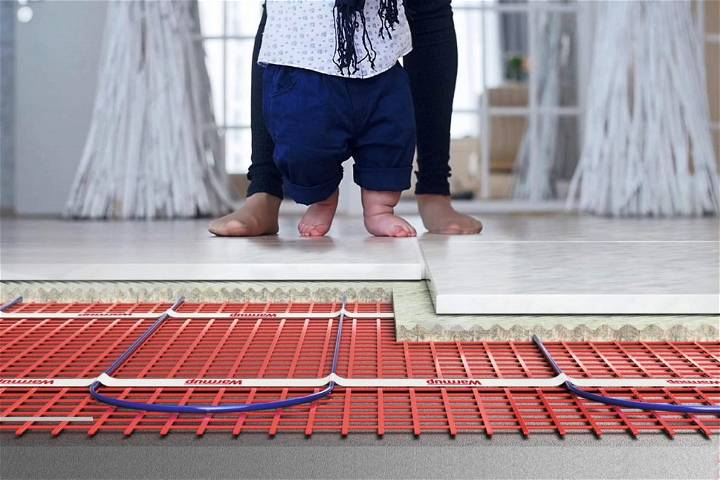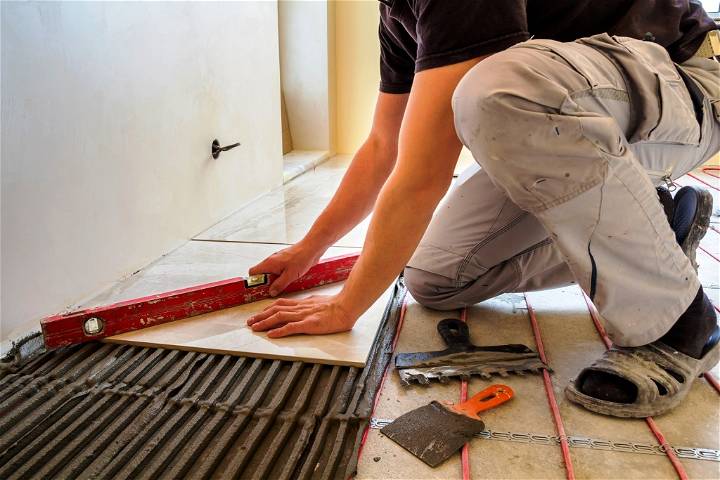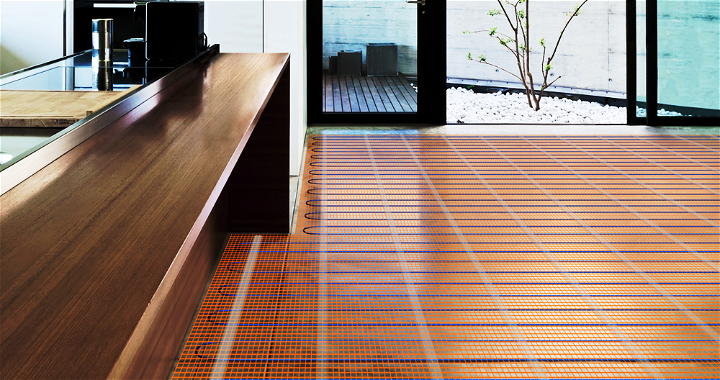When you think of the coldest months of the year, you likely think of those months being cold and unwelcoming. While you can always build a shelter or install a heat pump to fight the chill, you can make your home more welcoming during the colder months of the year. The easiest way to fight the cold is to install an electric floor heating system. These systems come in various options, from under-cabinet floor heating to radiant heating systems that heat the entire floor. This article will explain how electric floor heating systems work, the different options available, and why you should consider installing heated floors in Toronto. Keep reading to learn if you need an electric floor heating system and which one is right for your home.

What is Electric Floor Heating?
Electric floor heating is a system that heats your floor using electricity. These systems are typically installed under or on your floors. They produce heat that radiates out from the ground. These systems are great because they're easy to install and maintain. Once installed, you can adjust the settings on your system to control the temperature and amount of heat radiating from the floor below. Electric floor heating systems are particularly useful during the cold months. They allow you to keep your rooms warmer and more comfortable without using too much electricity.
Electric floor heating systems can be installed in a variety of ways. They can be installed under the floor as a system or installed as an individual unit. The individual unit type is designed to allow you to control the heat from your specific areas. You don't have to cover up your walls with bulky heating panels.
How Does Electric Floor Heating Work?
Electric floor heating works by converting electrical energy into heat energy that radiates from the ground below. This energy is then transferred throughout the heating cable into your home's electrical system. It is distributed throughout your home and radiates out through your floors and other surfaces such as concrete or wood floors.
For electric floor heating to work properly, you will need to install a grounding wire in your home's electrical system. A grounding wire ensures that the electricity going through your electrical circuit doesn't cause potential problems with nearby metal objects or fixtures.
Electric Floor Heating vs. Conventional Heat
While electric floor heating is more expensive than conventional heat, it can be a great alternative for homes that need more heat in specific areas. Many homeowners would rather have a more efficient heating system than the traditional fireplaces and radiators found in most homes.
Electric floor heating is also more energy-efficient than conventional heat. This means that your electric floor heating system will use less electricity to heat your home, saving you money.

How Do Electric Floor Heating Systems Work?
Electric floor heating systems from Heavenly Heat work similarly to traditional radiators in your home. The heat from a source — in this case, a furnace — transfers into a metal coil on the floor. The floor coil then heats up and radiates heat out into the room. There are two different ways radiant floor heating systems work: convection and conduction. Convection systems heat the floor by transferring heat through the air. This type of heating is good for warm and humid climates because it can warm up humid rooms quickly without causing a lot of air disturbance. - Conduction systems heat the floor by transferring the heat to the subfloor structure. This type of heating is good for colder climates because it doesn't cause a lot of disturbance to the cold air below.
Advantages of Installing an Electric Floor Heating System
Good for Warm and Humid Climates - Radiant systems are better for warm and humid climates because they don't cause a lot of disturbance to the warm and humid air above them. This is particularly useful in coastal areas where there's a lot of moisture in the air. This reduces the need for air conditioning.
Durable - Radiant systems are typically more durable than under-cabinet systems.
Energy Efficient - Radiant systems use less energy than under-cabinet systems.
Easy to Install - Both radiant and under-cabinet systems are easy to install. All you need is an electrician and a few tools.
Affordable - Both radiant and under-cabinet systems are affordable. They cost less than installing a gas furnace or air conditioner.
Reliable - Both radiant and under-cabinet systems are reliable. They work effectively, don't create a lot of sound, and don't use a lot of electricity.
Good for Small Spaces - Radiant systems are ideal for small spaces. They're perfect for tight spaces like basements, apartments, and condos.
What to Look for When Buying an Electric Floor Heating System
When looking for an electric floor heating system, there are a few things to consider. These include the type of system you want, the amount of heat you want, and where you want the system installed.
Type of System: There are two types of systems: radiant and under-cabinet. Radiant systems transfer heat through the air, while under-cabinet systems transfer heat through the structure. Both types effectively heat your floors, but the type you choose depends on your space and budget. For example, a radiant system may be more expensive than an under-cabinet system, but it may be better for your space. You should also consider where you want the system installed. A radiant system should be installed under the floor of a room, while an under-cabinet system should be installed inside the subfloor of a room.
You should also consider your floor's size and type: For example, ceramic tiles and stone tiles require more frequent maintenance than wood floors. You need to carefully consider the amount of heat your floor needs and the frequency you'll need to clean it.
Where to Install the System: You should also consider where you want the system installed. Some systems work better in certain locations, such as under your kitchen cabinets or at the end of a hall. You should carefully consider where you place the system to ensure it works best for your needs.

Budget: You should also consider your budget. Some systems cost more than others, but they all have similar benefits. You should carefully consider your budget to ensure you're getting the best system for your money.
Electric floor heating systems provide great warmth during the year's cold months. These systems transfer heat through the air or your floor's subfloor structure. Choose the right system that meets your budget and based on your floor's size and type, amount of heat, and where you want the system to be installed.

